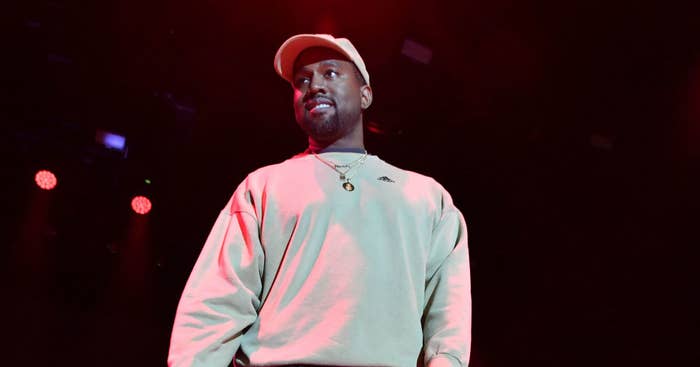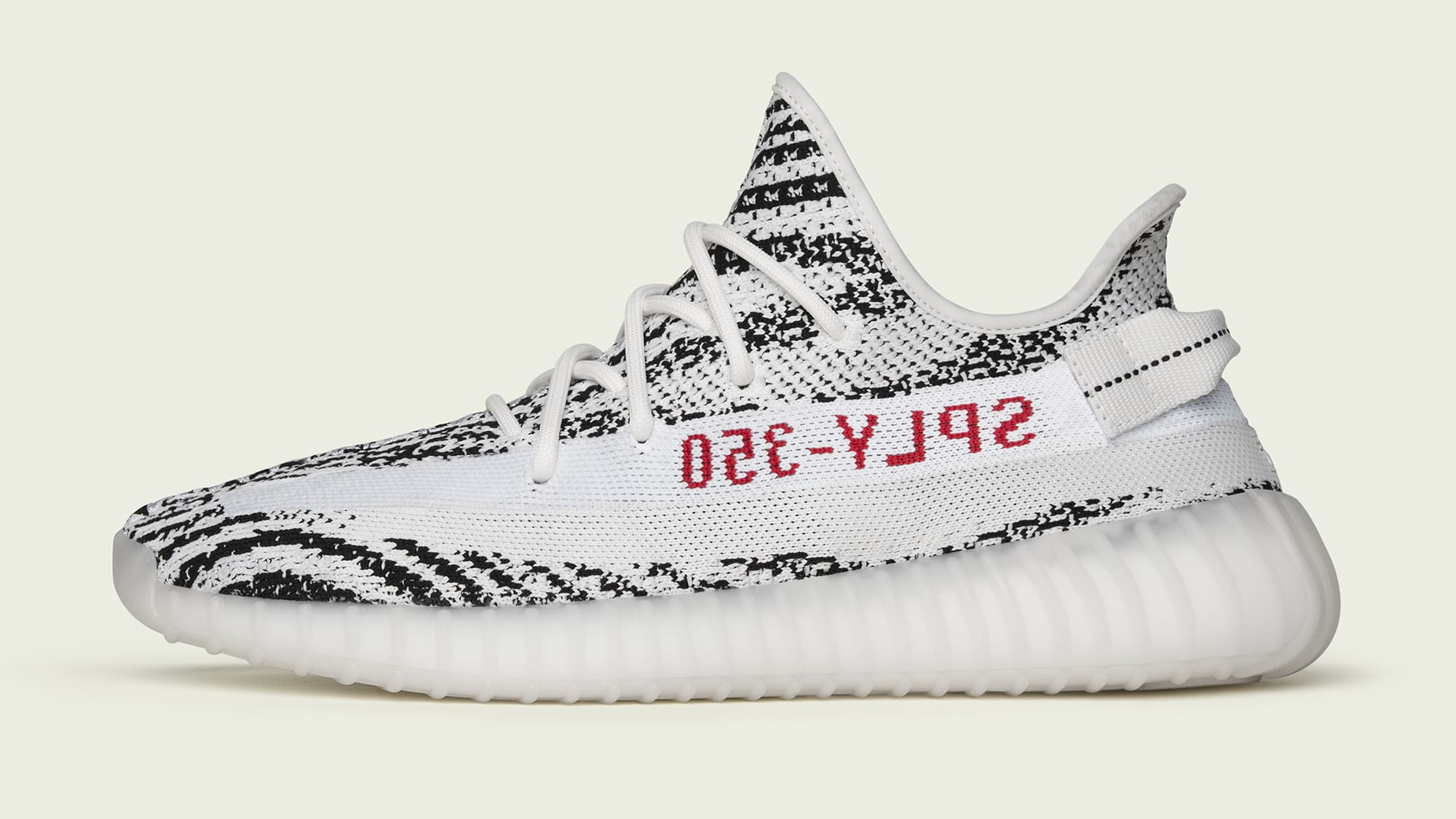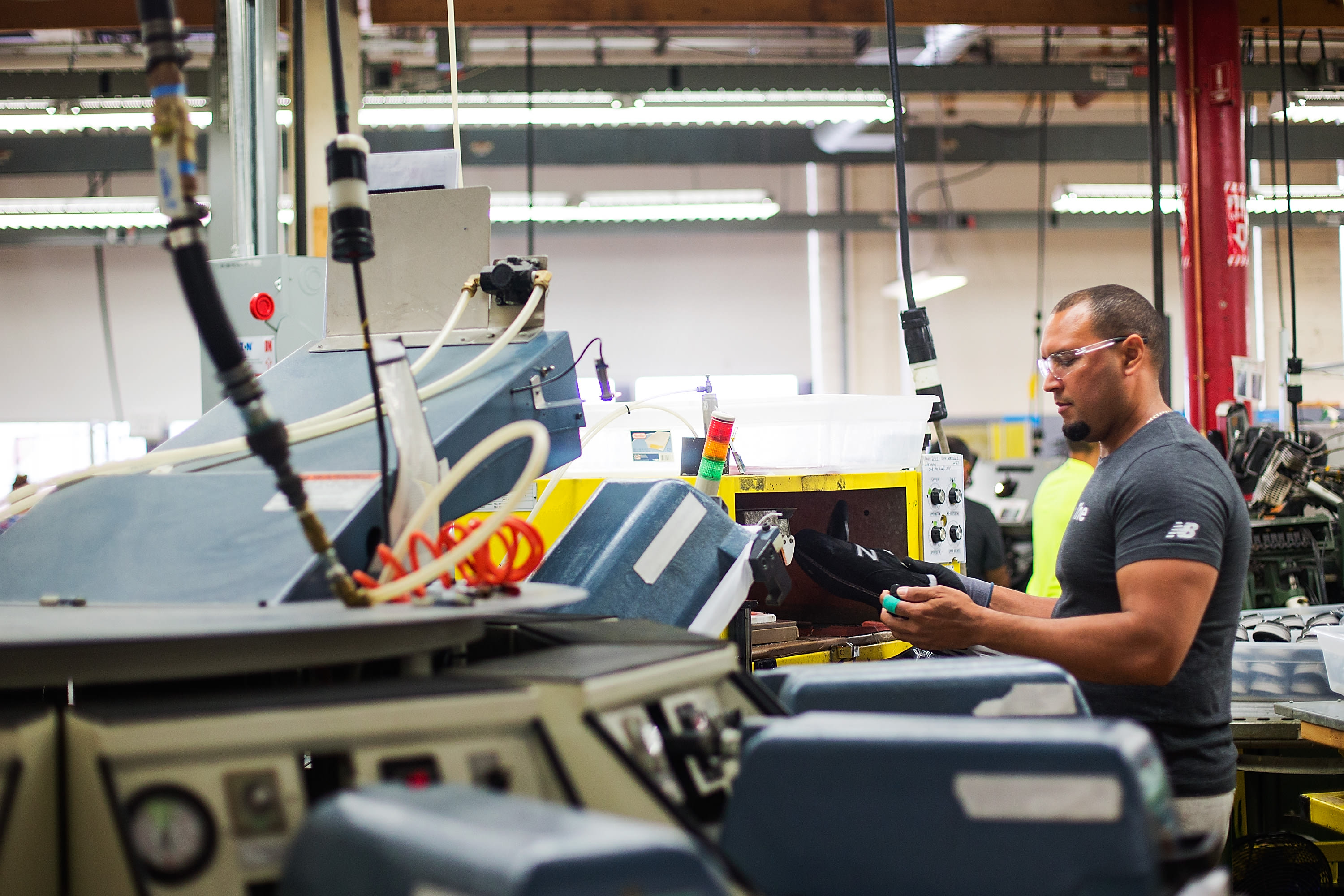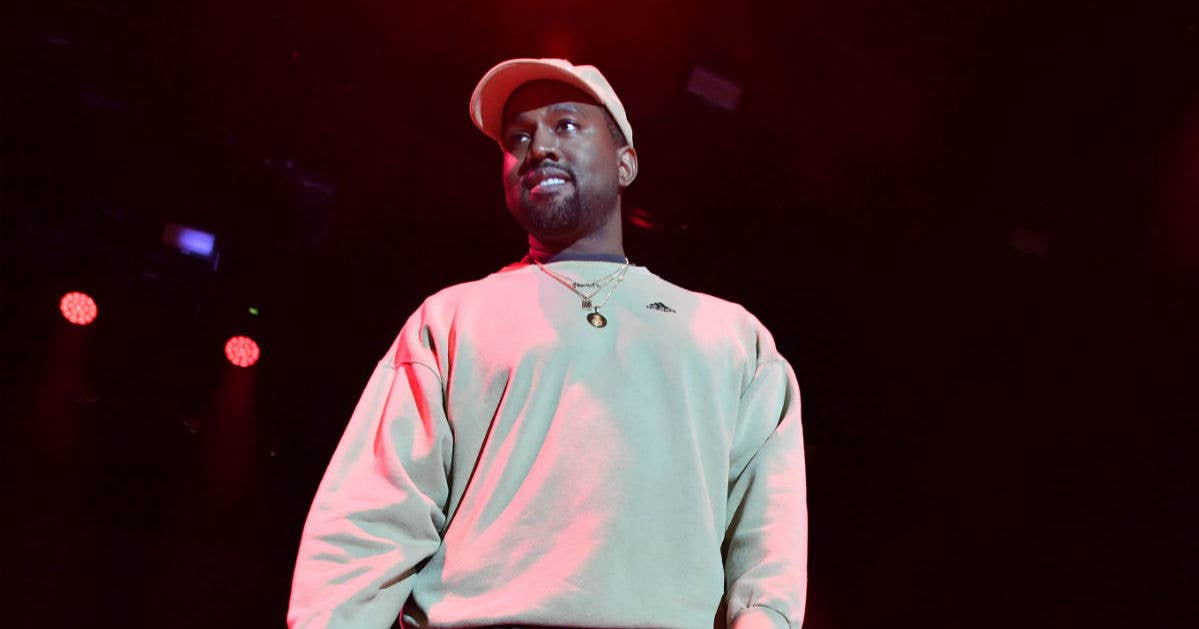
Kanye West continues to be a lightning rod for discussion whenever he speaks out, be it regarding music, politics, religion, or fashion. He touched on all of the above last week (plus more) when he joined Beats 1 Radio’s Zane Lowe for a nearly two-hour discussion in promotion of his long-delayed Jesus Is King album.
Early in the interview, West revealed a particularly interesting soundbite regarding the future of his Yeezy sneaker production, saying that within the next two years, “We’re gonna’ bring them back to the States.” Along with that, he added that “injection molded shoes” could be produced in U.S. factories, as well as hiring workers through prison reform systems.
“For me, as a founder, it’s really important to bring these jobs back to America," West explained. In addition to economic considerations, bring the manufacturing stateside would also allow for a more fluid development process—citing delays with the design of a motorcycle boot that has been stuck in customs as additional motivation.
While the production of Yeezys in America sounds like a great idea, this wouldn’t be the first time West has led his fans astray. The very album he was promoting at the time of the interview was originally promised back in September, and followed a prior album scheduled to drop in September 2018 which never materialized.
But even if West is sincere in his efforts, how realistic would it actually be? Could Yeezys really be made in America in just two years time? There is some precedent—the amount of U.S. footwear production is microscopic in the overall market, but it does exist.
Portland, while best known in the sneaker world as the U.S. headquarters of Nike and Adidas, is home to smaller brands like Keen, who assembles some footwear there, and Danner, whose military contracts require 100 percent of its service products be sourced in the U.S. Additional examples include Texas’ San Antonio Shoemakers, Munro in Arkansas, Okabashi in Georgia who specialize in sandals, Wolverine in Michigan, and Connecticut’s HH Brown Shoe Company.
The best known however is New Balance. As with Danner, its military contracted footwear is sourced entirely in the U.S., but the majority its high-price/low-tech offerings are merely assembled in New England after the parts are imported from China.
Despite these examples, the vast majority of the roughly 300 domestic producers are one-person operations and cobblers. According to Footwear Distributors & Retailers of America (FDRA) President and CEO Matt Priest, 99 percent of shoes sold domestically are imported.
An expert on the subject as head of the FDRA, Priest recently lead the charge against President Donald Trump’s tariffs, helping to pen a letter signed by nearly 200 brands including Adidas, Asics, Converse, Foot Locker, Nike, Puma, Reebok, and Under Armour, to reconsider the move. He currently is a member of the Board of Directors at the Fashion Footwear Association of New York and charity organization Soles4Souls in addition to his position with the FDRA, and formerly served as Deputy Assistant Secretary for Textiles and Apparel at the U.S. Department of Commerce.
Priest has tracked West’s movements in the footwear industry and as a personality, and even owns a few pairs of Yeezys himself. In light of these recent claim, we reached out for his take on how much of a reality U.S.-made Yeezys could actually. Read on to find out what Priest thinks is possible, the challenges faced, and if bringing footwear production back to America is really as good as it sounds.

What are your thoughts on what Kanye West’s Yeezy line has grown into and become since moving over to Adidas from Nike?
What's been really interesting about it is that it's been this product that's been really hard to get. So it's been operating in kind of the secondary market place and limited releases and drops and that's always been of interest to us. But it's never been a big needle mover for the $85 billion industry that we have here in the US, so it's been interesting to watch. But in the meantime they've been really smart about how they've ramped up to releasing more broadly, increasing the cadence of drops, and the accessibility of product. So that, coupled with him—his personality and his, I think, his intellect really, and his genius in a lot of ways has driven this to a billion-dollar company, just his section of it. I think it's been a case study for how do you navigate and create the demand on a product that's unique and it's not overwhelming. There's not like a thousand different looks to Kanye's drops, but at the same time it is unique to him because he's a unique kind of guy. And so it's hard to replicate that in other areas of the business and be successful.
That brings us to the interview and him saying that they're bringing Yeezy production to the U.S. in two years. So I guess the first question would be, do you think that's realistic?
That's a great question. We approach these claims with kind of critical thought and experience because 99 percent of shoes sold in the U.S. are imported. And we watch companies try to prop up manufacturing here and it's been difficult to do. We've seen how New Balance has struggled to maintain it—and they do a good job—but at the end of the day it's a fight. It's a battle to everyday make it sustainable economically. We've watched that pretty close up and so a couple of things come to mind. One, what capacity is there? Obviously footwear production is capital intensive, so they have to create that capacity. Number two is what kind of skilled labor is out there? I didn't listen to the entire two-hour interview. Was the suggestion that they're going to do it in Cody, Wyoming, on the land, or no?
It wasn’t really that specific—more of a general statement. I think that that's the interpretation, but he didn’t necessarily confirm that.
Well, let's kind of walk through both sides. Because I thought it was kind of, "I bought all this land. I was looking for plus-a-thousand-acres of land and Jackson Hole didn't have it so I came to Cody because I want to create this space where we're going to create farms and it's going to be farm-to-table, essentially, for apparel and footwear."
So if that's the case, the question is what's the labor force in Cody, Wyoming? I would have to imagine it's pretty small. And then from there, how can you attract labor to that space? If it's not in Cody, if it's somewhere else. If it's in Southern California or somewhere else, there might be a possibility. But to me it's possible because the construction's not overly complex—particularly on the 350s. You have knit uppers and a lot of ways and you have things that are easier to construct as it relates to production, and you have limited runs.
So you're not looking to make 100 million pairs of shoes, necessarily. But at the same time, it's a difficult road to hoe and it doesn't matter if you're Kanye or you're Under Armor or you're Adidas or Nike—it's not a model that's been successful in the modern era here in the last 25 years. So I think we have to kind of look at the claims with a critical thought, but also encourage and support if the need is there and the demand is there and his ability to pull it off is there. But it could also, at the end of the day, also just be one component. You could still be importing footwear. He could still be importing them in from Asia—this is coming in from China—80% or 90% of his product, but he might have a limited run that's made here in the U.S. and drop that and it's much more expensive.
But the last component is that the cost structure for the Yeezy, I think, can support U.S. labor because I think it's been elevated based on the limited availability. It's elevated based on the name attached to it: Kanye. The price is elevated. So I think within that cost structure you can start to play with the labor component, which is a heavy percentage of the cost, and still not totally out-price people who want to have access to it, particularly a Yeezy product made in the US.

You've been vocal about the tariff situation. How does that play into future U.S. production potential?
It's interesting. You think it would play into it a lot just on the face of it, but it actually doesn't, and this is why. We have the highest duty rates of just about any import product of any kind, here in the U.S. before the additional duties were applied on Chinese products. So we paid $2.9, $3 billion a year in duties on products, every year for years on end. And in spite of that, the jobs left 25, 30 years ago.
So in spite of the fact we have the high duty rates, the jobs have gone. So the thought is, "Well, it's not like we had zero duty, the jobs left and now we're reapplying duty and then the jobs will come back." It's actually the jobs left despite the duties. So the thought is maybe if you created duties across the world of all of our production countries, at 25% or higher, maybe that would bring it back.
But at the end of the day it's like a balloon animal. You squeeze the China side and all that capacity gets pushed to somewhere else, not in the U.S. It gets pushed to Vietnam or Cambodia, Bangladesh, Indonesia—all the countries that are growing right now on the production side, and it's not coming back here. In all honesty, I don't think it should in the sense that we have a very high cost of living. We have high wage rates. Americans are doing very well. We're a booming economy.
The Chinese would love to not make T-shirts and shoes. That's why their “Made in 2025” plan says nothing about making shoes. It's all about making aeronautics and artificial intelligence and those kinds of things. They want to create those higher value production opportunities. So I think it'd be a terrible day, unless it's driven by technology, for traditional footwear production to come back to the U.S. That means our economy's tanked and our unemployment rate's super high and those are the jobs we have to prop up. But that just shows you what the duties are and aren’t doing as it relates to domestic production.
So when Kanye talks about this vision of bringing this production here, is that not actually a productive thing to strive for?
No, in the sense that I think you could do it if you do it— well, again, he's got the cost structure-
So it's about doing it on the high end?
Yeah. High end you can do it and limited. High end, limited runs, limited drops, you can do it. Even the Speedfactory. Let's look at the Adidas Speedfactory in Atlanta. They're not cranking out a ton of product out of that factory. In fact, I live in DC, and when the Caps won the Stanley Cup, I picked up a limited edition Speedfactory shoe celebrating the Caps’ win and they were great. They're pretty basic kind of knit upper shoes. But they were $300. And I just think Kanye may have some styles he's envisioning that he can do here. But it's not going to be for the masses.
People lose sight of the fact that most people in this country buy their footwear at places like Walmart, Target, Kohl's, and Costco. And so when that's what moves the needle, that stuff cannot be made here. It won't be affordable or it'll be too costly for what you get. You'll have a basic shoe and it'll be more expensive than needs to be.
So I think you could do it. I think it's productive for him to consider it because he's got a unique brand. It's not a mass retail brand and he can kind of navigate that. We see that with other brands—Allbirds is a great example. Allbirds is a growing company based here in San Francisco. They have a basic product but have a unique story and a limited number of available SKUs, types of products, colorways and upper materials, et cetera. And they're just sitting in their lane, growing their business, particularly on direct-to-consumer sales and that's been great.
But do you see Allbirds in every Kohl's? No. And that's OK, too. They don't want to be there. I just think that if anyone could do it, Kanye could do it, but it doesn't necessarily mean it's going to serve the masses here in the U.S. as far as footwear consumers are concerned.
"If anyone can pull this together, it might be Kanye."
You mentioned the labor force, but what other hurdles do you see like facilities and equipment, to actually getting it going?
Yeah, facilities, machinery to produce in the facilities and then access to materials. Kanye's shoes are not leather heavy. I guess there are some leather in Kanye's.
Some of the models have some.
Yeah. So leather is hard to come by—tanned leather. Tanneries are terrible things to have in your community. The process of tanning leather is not a nice process; it's not a clean process. A lot of that happens overseas and so you have to import a lot of components. In fact, if you look at the New Balance factories, except for the product they make for the military, which by law has to be 100% sourced here in the U.S., all materials, all components—most of what they do is assembled components from China.
So they're shipping from their factories in China—the components are probably used for production in China for other products—they're shipping that to the U.S. and assembling it here. And so that's what happens. A lot of the companies have tried to prop up domestic production that is not used to meet military demand. It's just for consumer demand. They have to import in stuff to assemble. And I think that's what they'll find at least early on. If they want to prop this up, they'll have to figure out kind of, "All right, what do we have to input in? We're going to have to import and how do we assemble that?"
Those are some of the hurdles that people have to think about. Just availability of materials has been one of the biggest challenges for people trying to figure out how to produce here in the US.

Nike opening a facility in Arizona was in the news a few months back. Can you speak on their U.S. production at all?
Yeah. I know Nike, they do Air bag production in several spots in the country. They export that out to production globally. It keeps the technology here and for a brand like Nike that gets knocked off so much, I think it's important for them to kind of maintain that integrity on that type of technology. Again, that's small stuff. I think in total last year we imported in about 2.3 billion pairs of shoes and I think the number was 25 million pairs produced here in the US, so that's small.
It illustrates how little this is actually happening.
Right, I'll say this. I think there was this thought after Trump came in and we started adding duties to everything, there'd be this huge resurgence. In fact, they do this domestic manufacturing kind of exhibition at the White House and each state sends somebody. It’s all types of products, but Okabashi was the Georgia representative one year at the White House for that.
So I think there was this thought that there'd be all this great propping up of production, but it's not that simple. Even with the duties, it's not that economically viable. I don't think it's even a positive thing necessarily in the long term, just based on the economics and the global footwear industry. So what people thought would come to fruition, people have been kind of surprised that there hasn't been more establishment of domestic production. If anyone can pull this together, it might be Kanye.


